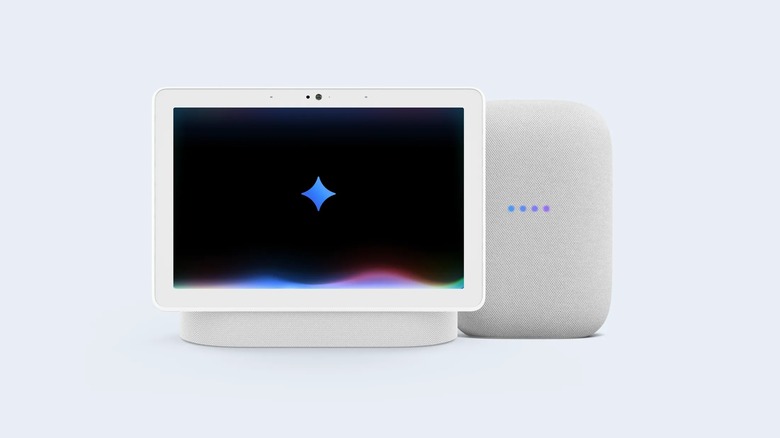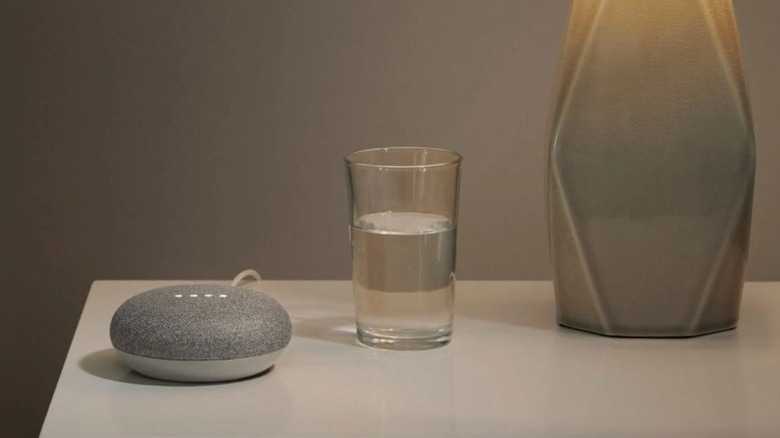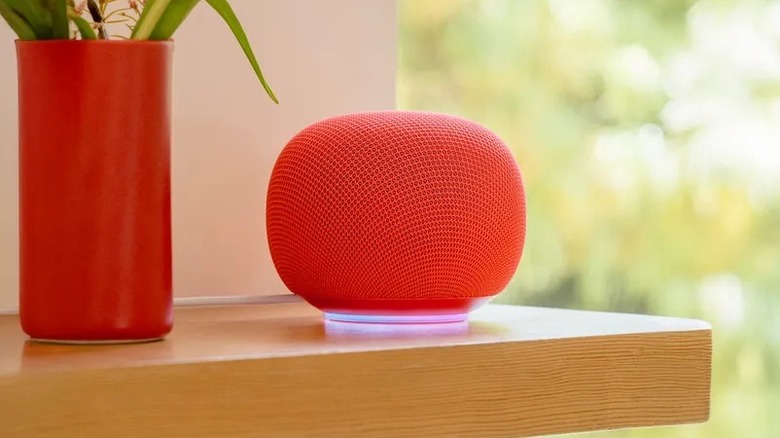Here's Every Google Home Speaker Getting Gemini AI
Until now, Google Home has been a smart home system with Google Assistant at its center. It was simple and reliable, but also fussy. You needed exact keyphrases, and memorizing them could feel akin to studying wizard spells. Assistant was built using an older kind of AI known as machine learning. Now, with the rise of generative AI, Google is replacing the trusty tool with Gemini, its own multimodal AI.
Google has fully refreshed the Google Home ecosystem with a Gemini update that introduces the AI model to all of your home's smart devices. We tested the Google Home Gemini update, and it's a mixed bag, but the AI controls are powerful. Gemini will also make its way to smart speakers, and many users were initially worried they'd need to buy new hardware to keep their smart homes running. However, Google put those fears to rest when it announced that it would push the Gemini update not only to the newest Google Home Speaker announced alongside the system refresh, but also to the vast majority of products released in the past decade.
If you're wondering whether your speakers are eligible for this major update, we've rounded up the entire list of devices it will land on. Google is rolling the update out in batches, so don't stress if you haven't received it yet. And if you're one of the many people who're not so thrilled with having generative AI shoved into your tech, we've also got tips on how to avoid Gemini in your smart home — at least for the time being.
Google promises Gemini to every speaker made since 2016
Google is promising a Gemini update to every smart speaker it has made since 2016. That does mean third-party speakers are out of luck. If you own Google Assistant speakers from a major smart speaker brand other than Google, you'll remain with Assistant on that device (good news for those who don't consider Gemini to be a desirable upgrade). Google speakers eligible for the Gemini update are: Google Home, Home Mini (1st gen), Home Max, Nest Audio, Nest Mini (2nd gen), Nest Wifi Point, Nest Hub (1st and 2nd gen), and Nest Hub Max.
However, not all Gemini features will be available on all updated devices. The standard "Hey Google" will wake all Gemini-equipped speakers for commands, just as before, but longer conversations with Gemini Live will be restricted to certain devices. Those are the Google Nest Hub (2nd gen), Nest Audio, Nest Mini (2nd gen), and Nest Hub Max. No matter what, though, you can still do things like group your smart speakers in Google Home.
If you want to get the update as soon as possible, you can head into the Home app on your phone. Tap your profile icon in the top right corner, tap Home Settings, scroll down, and tap Early Access. Follow the prompts to join the Early Access program, and your devices will be updated to Gemini. However, you may still need to wait a while. I've personally seen the Gemini update in-app, but it's been weeks since then, and my speakers are still on Google Assistant. There's no way to prevent the update entirely if you don't want it, but not taking part in the Early Access program will help postpone it.
Google has reasons for putting AI in old speakers
As the largest AI firms rush to amass as many users as possible, Google needs to prove that it still dominates in this area. Before the launch of ChatGPT, Google was widely considered to be at the bleeding edge of AI development. Since then, the search monopolist has found itself on the back foot, competing in a crowded market against a Microsoft-backed OpenAI, Meta, and newer players like Anthropic and Elon Musk's xAI.
One of the most valuable metrics in this climate is active users, which would prove to shareholders and investors that people actually want generative AI. That means there's a huge incentive on Google's part to push its AI into as many of its most popular products as possible. After baking AI Overviews into default searches on its platform, Google crowed about having 1.5 billion users of the feature in an April earnings call, eliding the fact that those users don't have much of a choice in the matter.
It was only a matter of time before Google took that strategy back home. Or, more precisely, back to your home. It hardly matters whether Gemini is better at turning your lights on than the Assistant it's replacing. What matters is that you'll be interacting with it regularly. One look at the Google Home subreddit gives us a sense of how that strategy is working out. One user's Nest Hub was fully bricked by the update, while another got stuck in Live mode. Others were beset by AI hallucinations where Gemini turned on the wrong lights or insisted that it could not control smart devices. Welcome to the future.


